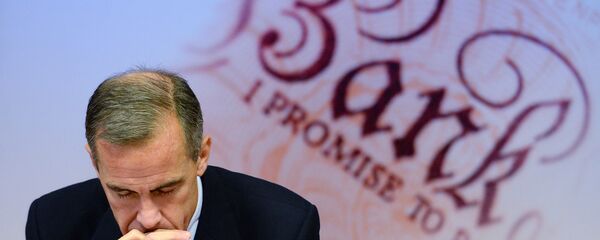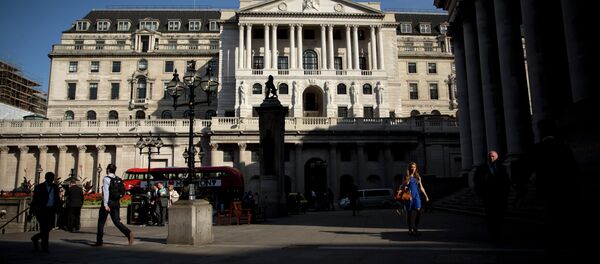Kristian Rouz – On Thursday, the Bank of England (BoE) cut its base borrowing costs from 0.50 percent to 0.25pc, in line with earlier predictions. The BoE has also extended its monetary stimulus package in bond purchases and used other tools to inject liquidity into the economy.
Earlier projections, including those from Barclays and Credit Suisse, suggested a short-term recession would hit the UK in the aftermath of the June 23 vote to exit the EU.
"We think consensus is too optimistic on UK growth for 2017. Our European Economics team expect the UK economy to contract by 1% in 2017 against a consensus of 0.5% GDP growth,” Credit Suisse said in a statement in July.
The decision is seen as rather dovish, and yet the likely outcomes might include an overheating of the UK’s financial markets, which had performed well enough already, before the policy move.
"The Bank of England has hit a perfect 'High Five' at today's meeting, over-delivering against market expectations and bucking the recent trend of central banks disappointing," Nick Gartside of JP Morgan Asset Management said.
The decision means the British businesses and households will have easier and cheaper access to credit, while savers and wealth trusts are taking a hit with deposit rates sliding close to (and potentially below) zero. In order to address potential risks of overheating in the financial sector, the MPC introduced a Term Funding Scheme (TFS), ensuring that banks will receive liquidity at rates close to the BoE’s, thus facilitating policy transmission to the economy in order to avoid potential discrepancies and the misuse of the ultra-affordable liquidity.
"In addition, the TFS provides participants with a cost effective source of funding to support additional lending to the real economy, providing insurance against the risk that conditions tighten in bank funding markets," the BoE said.
Subsequently, as the pound’s FX rate dropped and stocks soared, boosting the UK’s investment appeal internationally, hopes for a US Federal Reserve interest rate raise have evaporated. The US economy, likely sliding into a recession accompanied with an assets bubble in its hottest market segments, now seems less appealing for potential investors with base borrowing costs at just below 0.50pc.
In the UK’s macro figures, the BoE has taken a more cautious approach to forecasting in order to prevent investors’ excitement. Having cut its 2017 growth predictions to 0.8pc now from 2.3pc in May, and the 2018 forecast to 1.8pc from 2.3pc, the BoE is sending a clear signal to the markets in order to stave off possible gains in speculative transactions.
With inflation poised to accelerate to 1.9pc in mid-2017 and 2.4pc in the following two years, and unemployment rising to 5.4pc, the UK is gaining a competitive edge among other post-industrial economies. Currency risks and FX rate pressures are poised to become increasingly acute on a global scale, ultimately weighing on global growth prospects.





